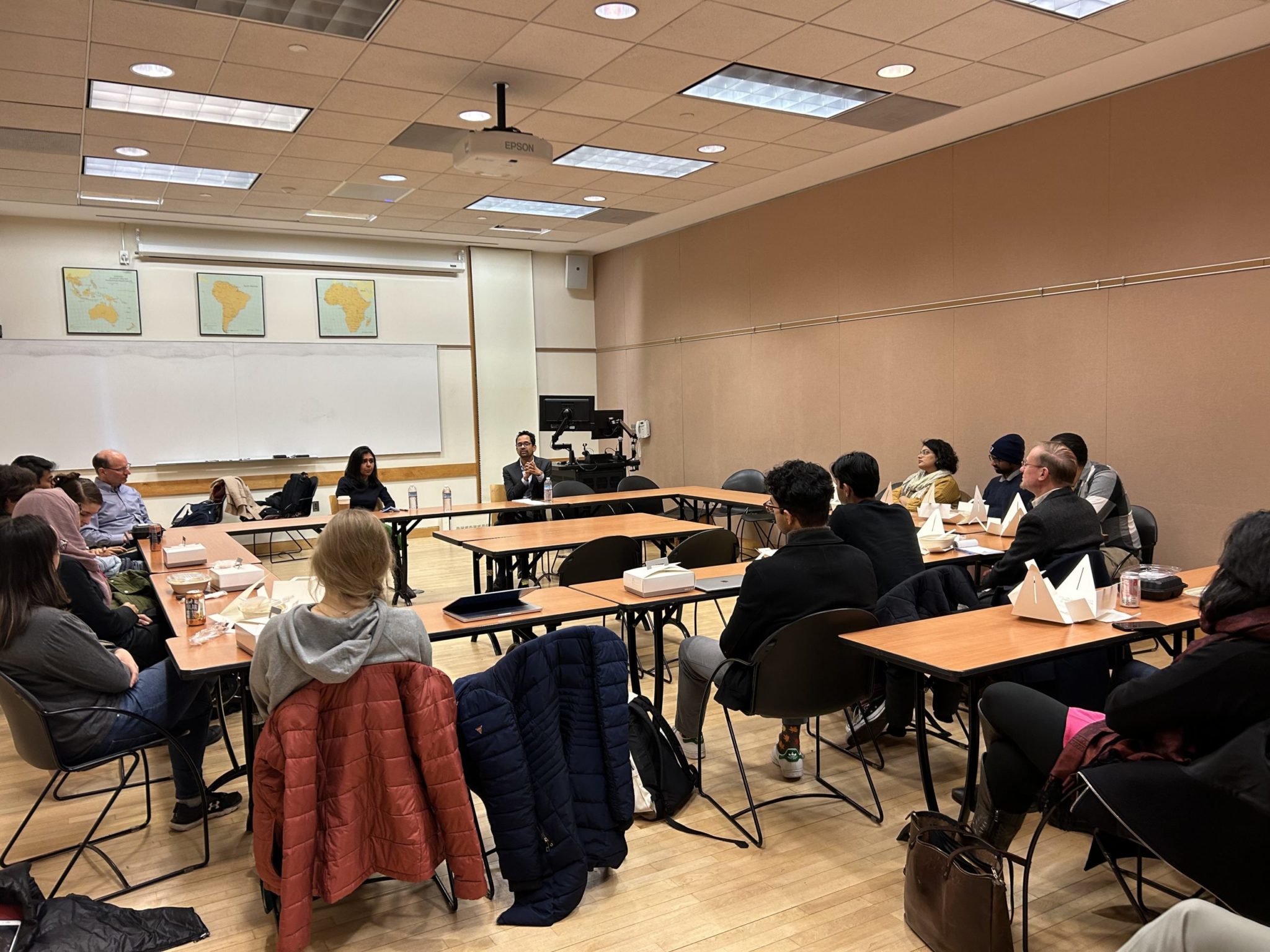Penguin Random House India chief talks South Asian Literature
Manasi Subramaniam, editor-in-chief of Penguin Random House India and a 2022 Maurice R. Greenberg World Fellow, spoke at Luce Hall about the past, present and future of South Asian fiction.

Abby Asmuth, Contributing Photographer
For Manasi Subramaniam, 2022 has seen a sea change in the world of South Asian literature.
Subramaniam, the editor-in-chief of Penguin Random House India, is currently at Yale as a 2022 Maurice R. Greenberg World Fellow — a program bringing accomplished individuals from around the world together for academic enrichment and leadership training. As part of the program, the World Fellows lead events for the broader Yale community.
On Nov. 29, Subramaniam presented “Tombs, Ghosts, Djinns, Shadows: This Decade in South Asian Fiction.”
“Manasi is the most distinguished editor in Indian publishing,” said professor of history Sunil Amrith, who serves as chair of the South Asian Studies Council. “She … has published 80 percent of the most interesting works in South Asian fiction in the last decade.”
The talk was co-hosted in Luce Hall by the South Asian Studies Council and the Yale Macmillan Center.
A mix of undergraduates, graduates and faculty gathered for the event.
Suraj Singareddy ’25 said he was drawn to the event because it was an opportunity to hear from somebody in the international literary world.
“I wanted to attend just because we don’t get many people from the international book world on campus,” Singareddy said. “Plus Penguin’s a huge publishing house, so I was really interested in what the head of Penguin for a whole country would have to say.”
Subramaniam began her talk with an overview of South Asian fiction: its history, common literary themes, successes and challenges.
She noted that it was only in the last 15 years that “homegrown literature” started to “flourish” in India, with the large publishing houses realizing the vast market in India for Indian voices. Much of this literature was “aspirational,” humorous and satirical — entirely outside of the typical narrative of India the West had come to expect. Subramaniam recounted the difficulty in selling the rights of modern South Asian literature in Western countries.
For Subramaniam, 2022 could change that trend. This year, “The Seven Moons” was the first Sri Lankan book to win the Booker Prize, and “Tomb of Sand” was the first Indian book to win the International Booker Prize. Both published by Subramaniam, neither text conforms to the West’s expectations for South Asian literature. But thanks to the prestigious Booker Prize, both are now in wider circulation.
While acknowledging the continued dependence of South Asian literature on Western seals of approval, Subramaniam added that she takes solace in the fact that her publishing house continued literary publishing “long enough for the Western canon to wake up and pay attention” to modern South Asian writing.
For Ayesha Ramachandran GRD ’08, associate professor of comparative literature and faculty member on the South Asian Studies Council, this aspect of Subramaniam’s talk was especially poignant.
“As somebody who writes about literature, I feel really committed to both writing about and calling out the ways in which literary standards do not always have to be beholden to the West,” Ramachandran said in an interview with the News. “What I thought was wonderful about Manasi’s talk and work is trying to really shift that paradigm.”
To Subramaniam, the Indian publishing industry has to be representative of the entirety of the Indian publishing market. She sees language as an important aspect of inclusivity, with English as a marker of a writer’s privilege.
In Subramaniam’s prints at Penguin, about a third of fiction published is now translated literature, which Subramaniam considers “the only way I can break out of the stranglehold of English-language hegemony in India.”
While aiming to represent the South Asian public, Subramaniam noted an important distinction between freedom of expression and a right to a platform.
“In India right now, there is a strong populist movement of right-wing fundamentalism,” Subramaniam said. “Does that mean it’s my responsibility to be representative of that movement? I certainly think not … The job of the publisher right now, particularly in a country like India, is to find that line which is exactly in between what is popular and what is meaningful.”
The South Asian Studies Council is located at the MacMillian Center at 34 Hillhouse Avenue.







